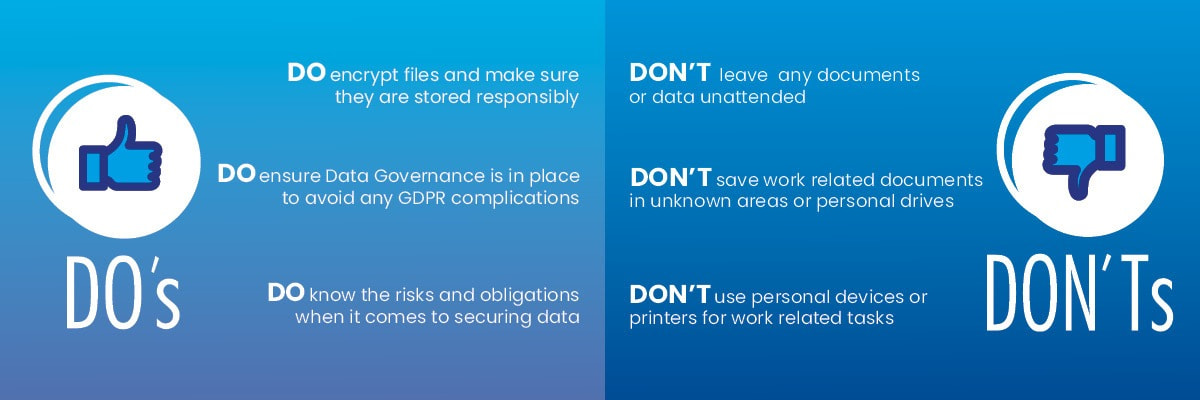Whilst the majority of UK employees have been working remotely for the past few months during the global pandemic, businesses need to be confident in knowing exactly where the end-to-end data point is within their devices, whether that be in the office or when working remotely.
Although many organisations have implemented data protection policies into their business model, the risk of corporate data being leaked from an office or remote working location could have huge implications, so it is important from a business perspective to help your staff know how to properly secure their remote devices and how to recognise potential security threats.
Given the current climate with approximately 9 million people in the UK on the job retention scheme (furlough leave) as of June 2020, organisations naturally have less physical control over where work related documents and data have been stored and where the physical end point of that data is.
With employees being able to take home company-owned devices such as printers and laptops, employers need to be sure they know which data is being stored on which devices and the specific staff members that have access to shared employee information and records across these devices.
This element of data storage has the potential to cause major data breaches within your organisation, especially with the capacity of employees that are currently working remotely and using their communal or shared household laptop and / or printer to send and receive work related documents.
Ensuring your documents are not overlooked
To ensure that your organisation and staff are taking the correct approach towards document and data security we have created a simple “Do’s and Don’ts of Data Security” which should be adhered to irrespective of if you are a home or hybrid based worker.

Historically the majority of organisations have relied on paper-based records to drive operational processes. However, today we see a vast majority of our solutions and infrastructure that we provide and manage for our clients helps to support their digital transformation strategies. In turn, this helps drive document digitisation and electronic workflows to complement and minimise clients reliance on hard copy paper documentation.
To find out how we can help your organisation regain control of paper and electronic data files, get in touch with one of our consultative experts today by using the contact form below:












































